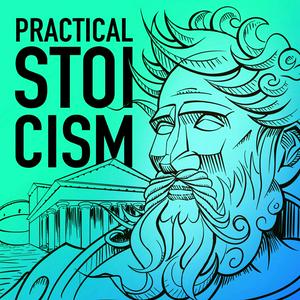I am a public philosopher, it is my only job. I am enabled to do this job, in large part, thanks to support from my listeners and readers. You can support my work, keep it independent and online, at https://stoicismpod.com/members
Looking for more Stoic content? Consider my 3x/week newsletter "Stoic Brekkie": https://stoicbrekkie.com
In this episode, I take up a question that seems settled, orthodox, and uncontroversial: can indifferents be preferred or dispreferred? Most Stoics would say yes and move on. But there is a serious ancient challenge to that position, and understanding it matters more than most people realize.
I begin with the standard Stoic account, drawing on Zeno as recorded by Stobaeus and Cicero. Virtue alone is good, vice alone is bad, and everything else is indifferent. Still, some indifferents are naturally preferred or rejected because they align with our rational nature. Health, social cooperation, and material sufficiency are not goods, but they are “according to nature.”
I then introduce the provocateur: Ariston of Chios. Ariston rejects the very idea of preferred and dispreferred indifferents. In his view, calling something a preferred indifferent is just calling it a good under another name. For Ariston, everything between virtue and vice is radically neutral, and any preference only arises situationally, never because the thing itself has standing within nature.
I explain why this disagreement is not merely semantic. Ariston’s position is inseparable from his rejection of Stoic physics and logic. Once those are removed, there is no rational structure of nature to ground stable preferences. Ethics collapses into a stark minimalism where virtue alone matters and everything else is interchangeable depending on circumstance.
This is why later Stoics saw Ariston as a dead end rather than a reformer. Without physics and logic, Stoic ethics loses its ability to guide action across time, roles, and recurring human situations. The philosophy becomes thinner, not sharper.
Finally, I connect this ancient dispute to a modern problem. Contemporary Stoicism often tries to keep the ethics while quietly discarding the physics and logic as unnecessary or outdated. That move repeats Ariston’s mistake. Stoicism can evolve, but it cannot survive if its foundations are simply removed without replacement. You cannot pull the columns out from under the Stoa and expect the roof to hold.
If we want Stoicism to remain coherent, actionable, and philosophically serious, we need to understand why preferred indifferents exist and what architectural commitments make them possible in the first place.
Listening on Spotify? Leave a comment! Share your thoughts.
Podcast artwork by Original Randy: https://www.originalrandy.com
Learn more about your ad choices. Visit megaphone.fm/adchoices


